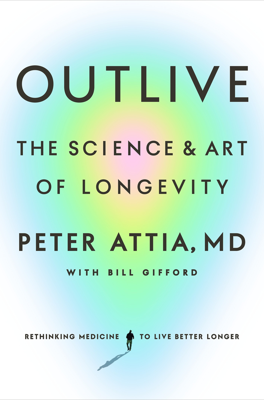The Awakening: How to Learn to Love Sleep, the Best Medicine for Your Brain
Importance of Sleep for Health and Wellness
Peter Attia emphasizes the critical role of sleep in maintaining overall health and its equivalence to a performance-enhancing drug, benefiting both cognitive and physical functions. He discusses his personal experiences with sleep deprivation during medical residency and the gradual realization of sleep's profound impacts on health.
Acute vs. Chronic Sleep Debt
Through his narrative, Attia distinguishes between acute sleep debt—like the danger of falling asleep at the wheel—and chronic sleep debt, which he describes as more insidious, leading to long-term health implications, including metabolic dysfunction, cardiovascular issues, and hormonal imbalances.
Sleep and Brain Function
Attia highlights that sleep is crucial for brain function and maintenance. Good quality sleep supports cognitive function, memory consolidation, and emotional stability. He explains that while we sleep, the brain undergoes processes critical for cognitive health, like clearing metabolic waste, including harmful proteins associated with neurodegeneration.
Scientific Insights into Sleep Cycles and Stages
The book details the different stages of sleep (NREM and REM sleep) and their respective benefits. NREM sleep, particularly deep sleep, is crucial for memory formation and maintaining metabolic health. REM sleep, however, is important for emotional regulation and problem-solving capabilities.
The Negative Impact of Modern Lifestyle on Sleep
Attia criticizes modern lifestyles that disrupt natural sleep patterns, particularly the excessive use of screens and exposure to artificial lighting. He discusses how these factors can impair the production of melatonin, a hormone critical for sleep regulation.
Practical Advice for Better Sleep
The author provides practical tips for enhancing sleep quality, including: - Creating a conducive sleep environment: This involves ensuring darkness and an appropriate temperature in the bedroom. - Regulating sleep habits: Suggestions include avoiding stimulants like caffeine and electronics before bedtime, managing stress, and establishing a fixed wake-up time to stabilize the sleep cycle. - Diet and Exercise: Recommendations cover avoiding heavy meals and alcohol before bed, and incorporating regular exercise, which can aid in establishing a healthy sleep pattern.
Addressing Sleep Disorders
For those suffering from severe sleep issues like insomnia, Attia recommends considering cognitive behavioral therapy for insomnia (CBT-I) which has proven more effective than medication. He also discusses the potential use of the drug trazodone, an antidepressant with sleep-inducing side effects, and supplements like ashwagandha.
In urging the importance of sleep, Attia equates good sleep practices with other health maintenance behaviors, positioning sleep as a non-negotiable pillar of health essential to both immediate functionality and long-term wellness.
